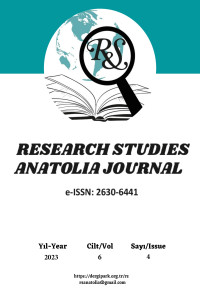HATAY’DA DİNSEL İNANCIN MEKÂNSAL KARŞILIĞI OLAN NUSAYRİ ZİYARETGÂHLARININ KENT SOSYOLOJİSİ BAĞLAMINDA DEĞERLENDİRİLMESİ
EVALUATION OF NUSAYRI VISITATIONS, WHICH ARE THE SPATIAL EQUIPMENT OF RELIGIOUS BELIEF IN HATAY, IN THE CONTEXT OF URBAN SOCIOLOGY
Author(s): Halil İbrahim ÇELEBİSubject(s): Cultural Anthropology / Ethnology, Culture and social structure , Rural and urban sociology, Sociology of Culture, Sociology of Religion
Published by: Arif YILDIZ
Keywords: Nusayriya; Urbanization; Urbanization; Urban Sociology; Urban Piety;
Summary/Abstract: In this study, which has gained content around the main problematic such as what Nusayri means in the context of urban sociology, concepts such as city, urbanization and urbanization are defined primarily. Afterwards, it has been tried to reveal what Nusayri is, which includes originalities such as the cult of Hızır, tomb belief, reincarnation (reincarnation), tawil and taqiyya, secret and closed community organization, through the existing scientific literature. The main purpose of this study, which deals with Nusayri in the context of urban sociology, is to try to reveal the points that contradict or do not overlap with the urban sociology theories of this belief in urban spaces. Namely; Within the studies of urban sociology, religious life is considered as a situation whose effect is decreasing in urban spaces. However, in Hatay, especially in Defne and Samandağ districts, religious life is lived around pilgrimage sites and in urban spaces. The study focuses on the problem of how the religious experience in question affects urbanization, unlike the existing sociological theoretical approaches, and claims that there is an originality/difference at this point.
Journal: R&S - Research Studies Anatolia Journal
- Issue Year: 6/2023
- Issue No: 4
- Page Range: 538-555
- Page Count: 18
- Language: Turkish

